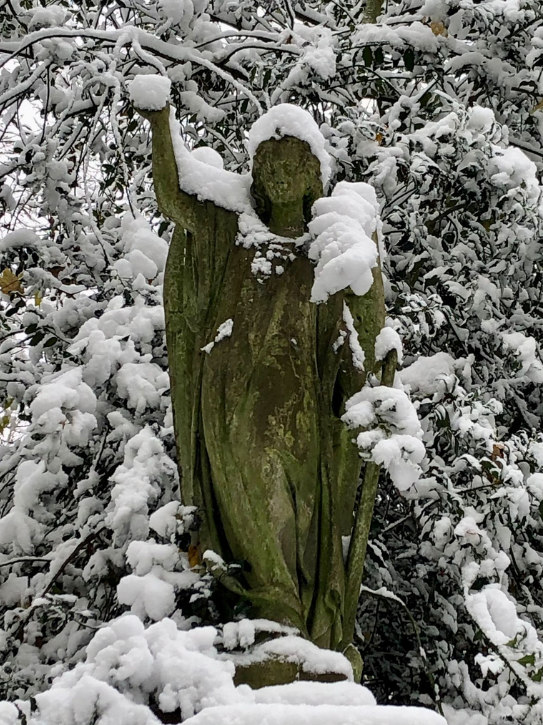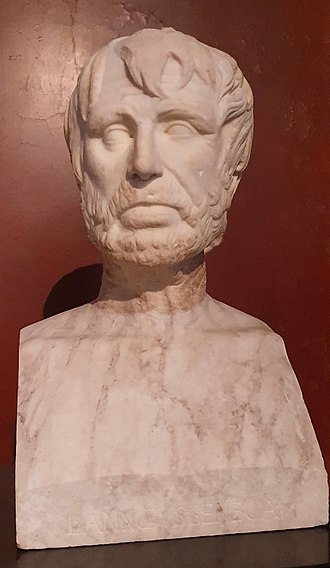
Hesiod is a contemporary of Homer, and therefore one of the first European poets, one of the first commentators on Greek life, thought, religion, mythology, farming and time keeping. ‘Works and Days’ is his Farmers Almanac and therefore long overdue an appearance on my Almanac of the Past.
Hesiod’s poems also introduce the idea of the epoch, past glorious epochs of Gold and Bronze with a further descent to his own epoch which was of the base metal age of Iron. In the 19th Century, European antiquarians, imbued with a humanist belief in Progress, developed the idea of Stone, Bronze and Iron Ages, an almost direct opposite of Hesiod’s, downhill-all-the-way to the present idea.
Hesiod also brings in early references to Prometheus and Pandora, two of the great myths of the flaws of humanity.
This is what he says of Winter. It is from a translation by Christopher Kelk, available to download here (I have added line breaks after full stops, just for ease of reading.)
…. you should make
A detour during winter when the cold
Keeps men from work, for then a busy man
May serve his house. Let hardship not take hold,
Nor helplessness, through cruel winter’s span,
Nor rub your swollen foot with scrawny hand.An idle man will often, while in vain
He hopes, lacking a living from his land,
Consider crime. A needy man will gain
Nothing from hope while sitting in the street
And gossiping, no livelihood in sight.Say to your slaves in the midsummer heat:
“There won’t always be summer, shining bright –
Build barns.” Lenaion’s evil days, which gall
The oxen, guard yourself against. Beware
Of hoar-frosts, too, which bring distress to all
When the North Wind blows, which blasts upon the air
In horse-rich Thrace and rouses the broad sea,
Making the earth and woods resound with wails.He falls on many a lofty-leafed oak-tree
And on thick pines along the mountain-vales
And fecund earth, the vast woods bellowing.
The wild beasts, tails between their legs, all shake.Although their shaggy hair is covering
Their hides, yet still the cold will always make
Their way straight through the hairiest beast.Straight through
An ox’s hide the North Wind blows and drills
Through long-haired goats. His strength, though, cannot do
Great harm to sheep who keep away all chills
With ample fleece. He makes old men stoop low
But soft-skinned maids he never will go through –
They stay indoors, who as yet do not know
Gold Aphrodite’s work, a comfort to
Their darling mothers, and their tender skin
They wash and smear with oil in winter’s space
And slumber in a bedroom far within
The house, when in his cold and dreadful place
The Boneless gnaws his foot (the sun won’t show
Him pastures but rotate around the land
Of black men and for all the Greeks is slow
To brighten).That’s the time the hornèd and
The unhorned beasts of the wood flee to the brush,
Teeth all a-chatter, with one thought in mind –
To find some thick-packed shelter, p’raps a bush
Or hollow rock. Like one with head inclined
Towards the ground, spine shattered, with a stick
To hold him up, they wander as they try
To circumvent the snow.As I ordain,
Shelter your body, too, when snow is nigh –
A fleecy coat and, reaching to the floor,
A tunic. Both the warp and woof must you
Entwine but of the woof there must be more
Than of the warp. Don this, for, if you do,
Your hair stays still, not shaking everywhere.Be stoutly shod with ox-hide boots which you
Must line with felt. In winter have a care
To sew two young kids’ hides to the sinew
Of an ox to keep the downpour from your back,
A knit cap for your head to keep your ears
From getting wet.It’s freezing at the crack
Of dawn, which from the starry sky appears
When Boreas drops down: then is there spread
A fruitful mist upon the land which falls
Upon the blessed fields and which is fed
By endless rivers, raised on high by squalls.Sometimes it rains at evening, then again,
When the thickly-compressed clouds are animated
By Thracian Boreas, it blows hard. Then
It is the time, having anticipated
All this, to finish and go home lest you
Should be enwrapped by some dark cloud, heaven-sent,
Your flesh all wet, your clothing drenched right through.This is the harshest month, both violent
And harsh to beast and man – so you have need
To be alert. Give to your men more fare
Than usual but halve your oxen’s feed.
The helpful nights are long, and so take care.Keep at this till the year’s end when the days
And nights are equal and a diverse cropKeep at this till the year’s end when the days
Hesiod’s Works and Days: Translation Christopher Kelk
And nights are equal and a diverse crop
Springs from our mother earth and winter’s phase
Is two months old and from pure Ocean’s top
Arcturus rises, shining, at twilight.
Acturus is not seen in winter, and in the Northern Hemisphere its rising (50 days after the winter solstice) and has always been associated with the advent of spring.
Boreas was the winged God of the North wind, which bore down from the cold Mountains of Thrace (north of Macedonia). One of his daughters, Khione, was the Goddess of Snow. Lenaion was associated with January one of the festivals of Dionysus, and a theatrical season in Athens particularly for comedy.

First published 15th December 2022, republished December 2023, 2024

‘Les très riches heures du duc de Berry’, a prayer book, also offers a very lively picture of life through the seasons in late Middle Ages with its beautiful illuminations.
yes, its a very beautiful book – I use it a lot in my lectures, and virtual tours on the medieval period and on Chaucer, and will probably feature it here, if I’m sure of copyright issues.